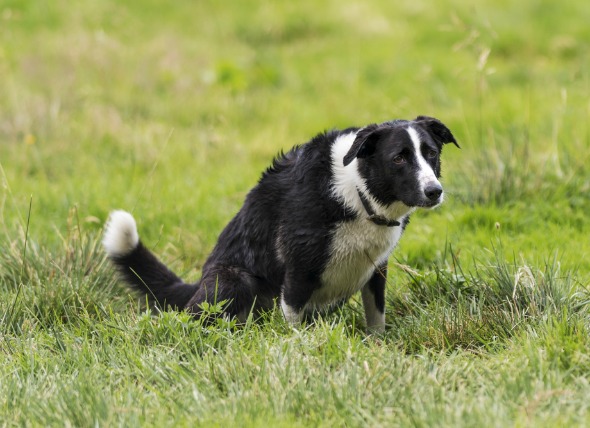

Histoplasmosis refers to a fungal infection caused by the Histoplasma capsulatum fungus. Dogs usually ingest the fungus when they eat or inhale contaminated soil or bird droppings. The fungus then enters the dog's intestinal tract, where it causes a diseased condition to develop.
The most common symptoms for dogs are lack of appetite, weight loss, depression, and diarrhea with straining. Other potential signs may include:
The primary cause of this infection is the ingestion of the Histoplasma capsulatum fungus. The fungus may be inhaled when contaminated soil is disturbed, such as what happens when dogs scratch or dig in the dirt, or through contact with contaminated bird droppings, including that from poultry, and bat droppings.
Other causes for histoplasmosis include:
A chemical blood profile, complete blood count, and urinalysis will be conducted. While blood tests may confirm the presence of histoplasmosa antibodies, this only means that your dog has been exposed to the fungus, and not necessarily that the dog is in a diseased state as the result of exposure. Further differential testing will confirm or rule out the actual state of histoplasmosis.
In order to settle on the correct course of treatment, your veterinarian will want to differentiate the symptoms of histoplasmosis from the syptoms of other diseased conditons. Severe chronic diarrhea and weight loss can indicate a variety of conditions for dogs, including lymphocytic plasmacytic enteritis, eosinophilic enteritis, lymphoma, chronic parasitism, and exocrine pancreatic insufficiency.
Veterinarians will usually treat this condition with medications on an outpatient basis. If inpatient treatment is recommended, it may be as the result of your dog being unable to absorb nutrients properly (malabsorption) due to the intestinal disorder. If this is the case, your veterinarian will administer drugs, nutrients, and fluids intravenously until the condition has improved.
After the initial treatment, your dog's activity level should be reduced until it is fully recovered. Cage rest, or restriction to an enclosed environment will limit your dog's movement enough so that it will not stress itself and prolong the recovery period. If the condition does recur, a second course of treatment may be needed.
To prevent the development of histoplasmosis, you will need to try to steer your dog away from areas that are suspected areas of exposure to the histoplasma fungus, such as where birds, poultry or bats might roost, or around soil that is obviously contaminated with bird droppings.
 Brain Tumors in Dogs
A tumor is defined as an abnormal growth of cells
Brain Tumors in Dogs
A tumor is defined as an abnormal growth of cells
 Amphetamine Poisoning in Dogs
Amphetamine Toxicity in Dogs
Amphetamines are a p
Amphetamine Poisoning in Dogs
Amphetamine Toxicity in Dogs
Amphetamines are a p
 Posterior Displacement of the Bladder in Dogs
Pelvic Bladder in Dogs
The term "pelvic blad
Posterior Displacement of the Bladder in Dogs
Pelvic Bladder in Dogs
The term "pelvic blad
 Congenital Heart Defect (Pulmonic Stenosis) in Dogs
Pulmonic Stenosis in Dogs
Pulmonic stenosis is a
Congenital Heart Defect (Pulmonic Stenosis) in Dogs
Pulmonic Stenosis in Dogs
Pulmonic stenosis is a
 Skin Disease (Dermatophilosis) in Dogs
Dermatophilosis in Dogs
Dermatophilosis is a skin
Skin Disease (Dermatophilosis) in Dogs
Dermatophilosis in Dogs
Dermatophilosis is a skin
Copyright © 2005-2016 Pet Information All Rights Reserved
Contact us: www162date@outlook.com